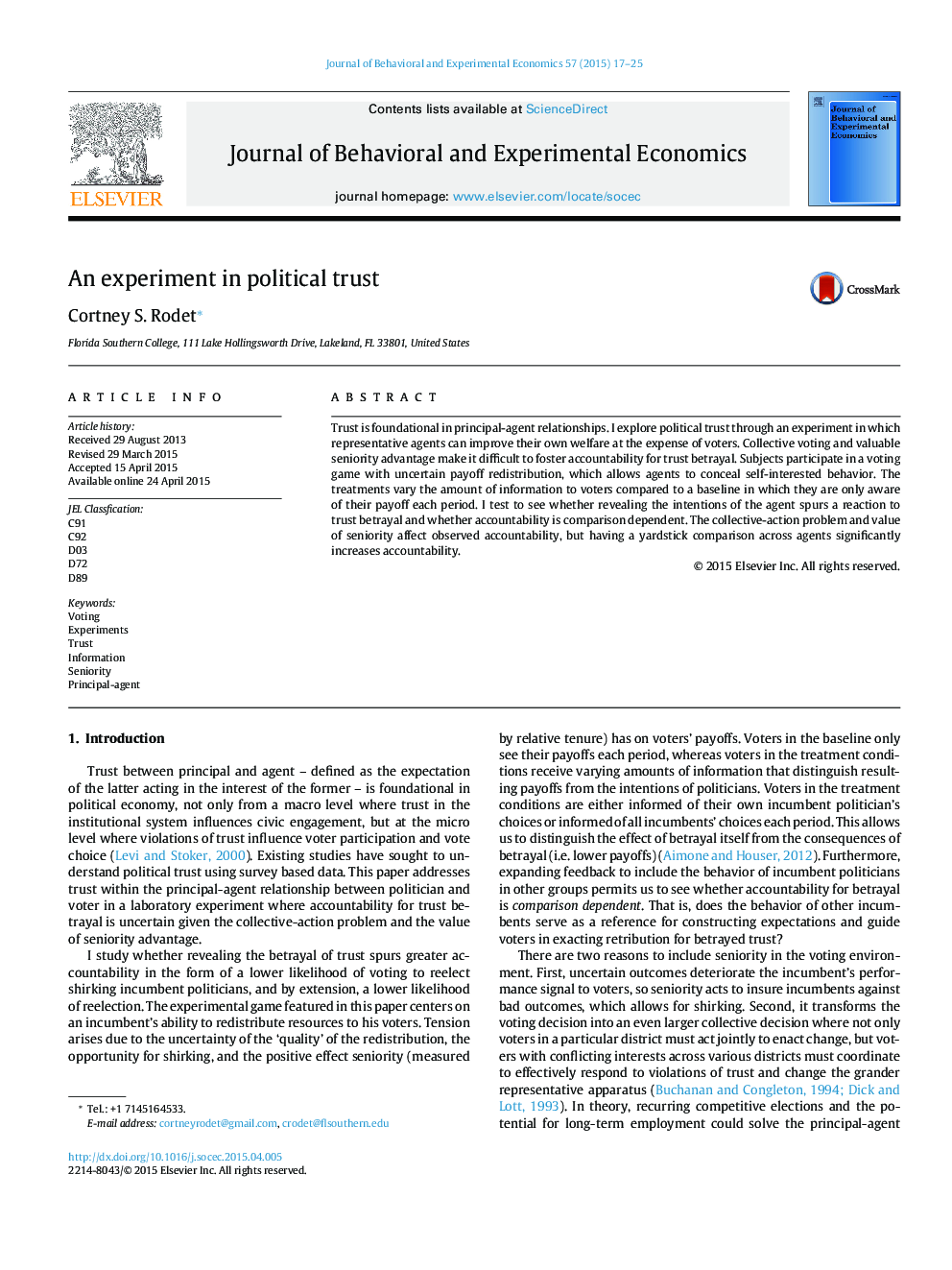| Article ID | Journal | Published Year | Pages | File Type |
|---|---|---|---|---|
| 881829 | Journal of Behavioral and Experimental Economics | 2015 | 9 Pages |
•Experiments are used to study political trust in a collective action setting.•Voters’ reactions to betrayal by politicians are explored.•Seniority advantage makes accountability costly.•Revealing politicians’ relative behavior increases accountability.•Revealing intentions decreases the frequency of politician shirking.
Trust is foundational in principal-agent relationships. I explore political trust through an experiment in which representative agents can improve their own welfare at the expense of voters. Collective voting and valuable seniority advantage make it difficult to foster accountability for trust betrayal. Subjects participate in a voting game with uncertain payoff redistribution, which allows agents to conceal self-interested behavior. The treatments vary the amount of information to voters compared to a baseline in which they are only aware of their payoff each period. I test to see whether revealing the intentions of the agent spurs a reaction to trust betrayal and whether accountability is comparison dependent. The collective-action problem and value of seniority affect observed accountability, but having a yardstick comparison across agents significantly increases accountability.
